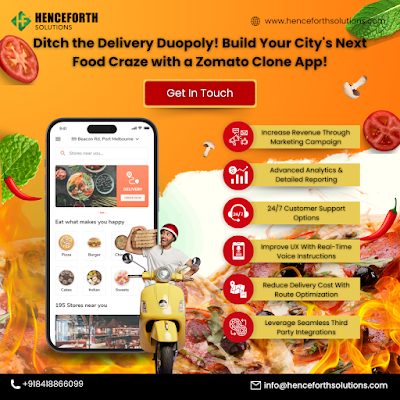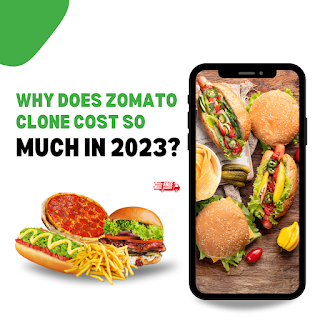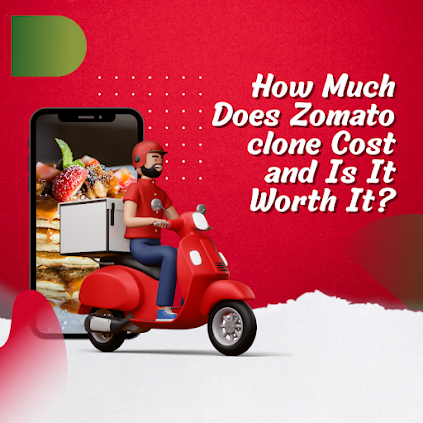Introduction
In today's fast-paced digital era, the convergence of technology and food delivery has given rise to innovative solutions like Zomato Clone Apps. These applications, designed to replicate the success of platforms like Zomato, are shaping the future of the culinary landscape. Let's dive into the technological advancements driving this evolution and explore the intricacies of development using Flutter, React Native, PHP scripts, and responsive websites.
Evolution of Zomato Clone Apps
Historical Background
Zomato Clone Apps didn't emerge overnight; they have a rich history rooted in the evolution of mobile technology and changing consumer behavior. The demand for convenient, on-the-go food options paved the way for app-based food delivery services.
Impact of Technological Innovations
Technological advancements, such as improved internet connectivity, GPS tracking, and secure payment gateways, have played a pivotal role in the success of Zomato Clone Apps. These innovations ensure a seamless experience for both users and restaurant partners.
Key Features of Zomato Clone Apps
User-Friendly Interfaces
Zomato Clone Apps prioritize user experience with intuitive interfaces. From easy navigation to personalized recommendations, these apps enhance users' overall satisfaction.
Seamless Ordering Process
Efficient order placement and payment processes are essential components. Zomato Clone Apps streamline these processes, reducing user friction and encouraging repeat business.
Real-Time Tracking
Real-time order tracking provides transparency and builds trust. Users can monitor the status of their order from the kitchen to their doorstep, enhancing the overall customer experience.
Flutter and Zomato Clone Development
Introduction to Flutter
Flutter, developed by Google, is a popular choice for cross-platform app development. Its single codebase allows developers to create high-performance applications for both Android and iOS.
Advantages of Using Flutter for Zomato Clone Apps
Using Flutter in Zomato Clone development offers advantages such as faster development cycles, expressive UI, and a native feel across platforms. This section will delve into how Flutter elevates the development process.
Integration Challenges and Solutions
While Flutter offers numerous benefits, developers may face integration challenges. This part of the article will discuss common issues and provide solutions to ensure a smooth development process.
React Native and Zomato Clone Development
Overview of React Native
React Native, maintained by Facebook, is another robust framework for cross-platform app development. Its modular and reusable components make it popular for large-scale applications like Zomato Clone.
Benefits of React Native in App Development
This section will explore the advantages of using React Native, such as cost-effectiveness, code reusability, and a thriving community. It will highlight how these benefits contribute to the success of Zomato Clone Apps.
Customization in Zomato Clone with React Native
Customization is crucial for creating a unique brand identity. React Native allows developers to tailor the app to specific business requirements, fostering innovation and differentiation.
PHP Script and Zomato Clone
Role of PHP in App Development
PHP scripting language plays a vital role in the backend development of Zomato Clone Apps. This section will discuss the functions of PHP and its significance in ensuring a smooth and secure user experience.
Scripting Zomato Clone Apps with PHP
Developers often use PHP scripts to create dynamic and interactive features within Zomato Clone Apps. However, security concerns may arise. This part of the article will address these concerns and suggest best practices for secure scripting.
Security Considerations
Ensuring the security of user data and transactions is paramount. We will explore the security measures developers should implement while scripting Zomato Clone Apps using PHP.
Zomato Clone Website Development
Importance of a Responsive Website
In addition to mobile apps, having a responsive website is crucial for reaching a broader audience. This section will highlight the significance of a website and its role in enhancing the overall user experience.
Design and User Experience
The design of the website significantly influences user engagement. We will discuss design principles and user experience considerations for Zomato Clone websites, ensuring a seamless transition from app to web.
Future Trends in Zomato Clone App Development
Artificial Intelligence Integration
Integrating AI in Zomato Clone Apps opens avenues for personalized recommendations, predictive analysis, and enhanced user engagement. This section will explore how AI is reshaping the future of food delivery tech.
Augmented Reality for Menu Exploration
AR technology is transforming the way users interact with menus. Exploring dishes through AR enhances the visual experience, contributing to better decision-making. We'll discuss the implementation of AR in Zomato Clone Apps.
Voice-Activated Ordering
The rise of voice-activated technology introduces a new dimension to food ordering. Zomato Clone Apps are exploring voice commands to give users a convenient, hands-free experience.
Burst of Zomato Clone Apps in the USA
Market Overview
Zomato Clone Apps are experiencing a surge in popularity in the USA. This section will provide insights into the market dynamics, user preferences, and the competitive landscape.
Popularity and User Adoption
Understanding the factors contributing to the popularity of Zomato Clone Apps in the USA is essential. This part of the article will explore user adoption trends and the reasons behind the widespread acceptance of these apps.
Perplexity in Zomato Clone App Development
Balancing Complexity and User Experience
Developers face the challenge of balancing complex features with a user-friendly interface. This section will discuss the perplexity of app development and strategies for delivering sophisticated features without compromising usability.
Challenges and Solutions
Identifying challenges in Zomato Clone App development, such as scalability issues and evolving user expectations, is crucial. We will present practical solutions to address these challenges and ensure a sustainable development process.
Conclusion
In conclusion, Zomato Clone Apps represent the amalgamation of cutting-edge technology and the evolving demands of the food delivery industry. From the use of Flutter and React Native to scripting with PHP and envisioning future trends, these apps are at the forefront of innovation.
FAQs
- How to choose between Flutter and React Native for a Zomato Clone?
- Consider factors such as development speed, platform support, and community support to make an informed choice.
- Is it necessary to have a website and a Zomato Clone mobile app?
- While a mobile app is crucial, having a responsive website expands the reach and accessibility of the Zomato Clone.
- What security measures should be taken while using PHP scripts for app development?
- Secure coding practices, regular updates, and server-side validation are essential for ensuring the security of Zomato Clone Apps developed using PHP.
- Can Zomato Clone Apps adapt to regional food preferences?
- Yes, customization features in Zomato Clone Apps, especially with React Native, allow adaptation to regional food preferences.
- How do AI and AR enhance the overall user experience in food delivery apps?
- AI enables personalized recommendations, while AR enhances the visual exploration of menus, collectively contributing to an enriched user experience.




